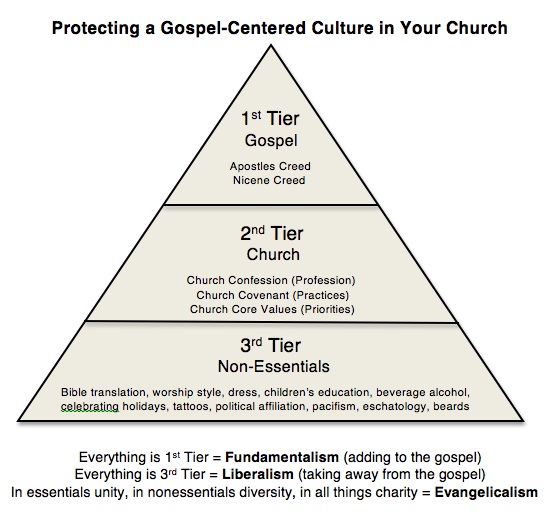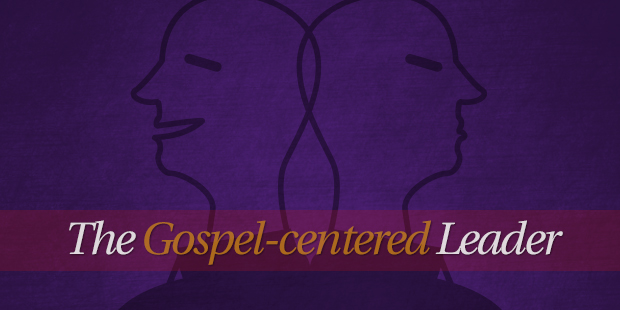Tim Keller’s new book, Center Church: Doing Balanced, Gospel-Centered Ministry in Your City may be the most important book he has written. It’s the size of a textbook because of how expansive its vision is. These 400 pages capture the essence of Keller’s theological vision, worked out over decades of pastoral ministry in New York City. As I read the book, I had to keep sharpening pencils because of my extensive underlining.
Today, I welcome Tim to the blog for a conversation about some of the important topics addressed in Center Church.
Trevin Wax: Tim, you speak of “gospel renewal” as something bestowed by the Spirit and also something we work toward. How would you define “gospel renewal” and how do we seek something only God can give?
Tim Keller: We who are Calvinists that believe in the free offer of the gospel regularly ask people to seek something only God can give. Not only would we say only God can give salvation, but we would say that you can’t even want salvation unless God gives it. Yet we call people to repent and believe. I see no reason why we can’t call people to seek gospel renewal and revival even though only God can give it.
If you look back at theologians who have written on revival, they wrestle with this very issue. Is it merely something you can pray for (which, by the way, is something you are doing to seek revival), or are there other things you can do (like recover clear gospel preaching, etc.)?
As in all ministry, a balance must be struck between pessimistic passivity on the one hand and the frantic assumption that you can create revival on the other.
Trevin Wax: In a recent comment on your book, Scot McKnight described your definition of the gospel as thoroughly “soterian” – meaning, it is focused on individual salvation that comes by grace through faith. In your defense, I’d say you give significant space to unpacking the gospel’s implications in light of Christ’s lordship.
Why is it important to keep individual salvation at the center of our thinking about the gospel? And do you sense a tension between a focus on individual salvation and the resurrection-centered, kingship-focused sermons we see in Acts?
Tim Keller: Scot and I disagree on this. But yes, I do think individual salvation needs to be kept central.
In Romans 8 Paul speaks of the renewal of creation—its liberation from decay—something that shows that ultimately God’s salvation means the renewal of the whole world, not just the salvation of individual souls. Yet in verse 21 Paul says that the creation will be brought into our freedom and glory as children of God—the glory that we as individuals have received through faith in Jesus Christ.
So rather than saying—as many do—that the main point of the gospel is cosmic salvation, and our individual salvation(s) are just part of that, it might be more accurate to say it’s the other way around. It may be that cosmic renewal is a fruit of our individual, personal salvation.
Because I read Romans 8 the way I do—I see substitutionary atonement and justification as not something that comes along with the bigger story but as the point of the spear of the Big Story.
Trevin Wax: You argue that in our evangelistic efforts, we should put forth a compelling challenge of competing worldviews. Along these lines, you recommend distinguishing between a culture’s “A” doctrines from its “B” doctrines as we make a case for Christianity. Can you elaborate on what you mean by “A” and “B” doctrines?
Tim Keller: What I mean is that a genuinely persuasive argument does not merely tell you that you are wrong about everything. It doesn’t just beat on you from the outside. It comes inside your belief system, as it were, and affirms something you believe strongly. And then it says—well if you believe this (A) then why in the world can’t you see that B is true?
So for example when speaking to a group of atheists who believe strongly in human rights, you make the case that if we simply evolved by accident there is no scientific or other basis for a belief that every human being is equal in dignity—in fact, science gives evidence of the opposite. Then you conclude “if your premise (that there is no God) leads you to conclude something you know isn’t true (that human beings do not all have equal rights and dignity) then why not change your premise?” If you take time to listen to persuasive arguments, you will see they usually do this.
Trevin Wax: I benefited from the balance on display in your explanation of four common ways many Christians relate to culture (Transformationists, Relevants, Counterculturalists, Two Kingdoms). At the end of this section, you left the question open-ended, advocating for different strategies based on cultural context and personal giftings. How did you come to the conclusion that all four views have strengths and weaknesses that need to be held in tension with the others?
Tim Keller: Don Carson’s book Christ and Culture Revisited looks at the 5 models of Christ-and-culture laid out by Niebuhr. They don’t perfectly line up with my four, but Don’s argument was that outside of the “Christ of Culture” model (the view of older Liberal Christianity) all the models had biblical warrant, yet that meant that any of the models taken too exclusively would be leaving out the biblical insights of the other models.
So in the end I say that you should choose the model that seems to best fit your time, place, and personal affinities, but be very careful to use the insights and tools of the other models to keep yourself from imbalance.
Trevin Wax: The term “missional” is often used today in a variety of ways – some of which contradict each other. You maintain a place for the word “missional,” but want to be specific about what it means and does not mean. How would you define “missional?”
Tim Keller: I think that the word “missional” is useful because it means something more (though not less) than being very evangelistic. It means recognizing the post-Christian character of our western society, and revamping everything we do in accord with that.
We no longer have cultural institutions imparting respect for the Bible and the church in the general population so that the average person:
- pays attention to the church,
- seeks it out for milestone moments like baptisms, weddings, funerals, and
- understands what you mean by terms like God, sin, heaven, hell, right and wrong.
This means revamping how you preach, how you instruct, how you evangelize—everything. Notice how differently Paul (in Acts) preached to pagans than he did in synagogues where people were steeped in the Scripture.
So I’m not ready to abandon the term missional. There are very different views of how to be the church now in our post-Christian culture, but we should be making the effort rather than simply doing business as usual.
Trevin Wax: There is a current discussion going on in gospel-centered circles about the “mission of the church,” and particularly, the nature of “making disciples.” What aspects of this discussion have encouraged you? How would you weigh in and speak to some of the deficiencies you see in this discussion?
Tim Keller: I’m good with saying that the mission of the church is basically to “make disciples.” I like it because it safeguards the centrality of what the church alone can really do—bring people to faith in Christ. But I might differ with others on what those disciples look like.
I’d say you haven’t discipled someone if they only have been equipped to evangelize and bring people to church. If they are truly discipled, they must be motivated and equipped to love their neighbors, to do justice and mercy. And they also must be equipped to integrate their faith with their work, namely, to engage culture.
One problem I see is that many churches that insist that the church’s job is to only to make disciples do virtually nothing to help disciples grow in these areas, even though it is clearly part of the biblical job description for individual believers. Put another way—the job of the institutional church gathered is not to change social structures/culture, but to create disciples (who comprise the ‘organic’ church dispersed) who will change social structures and the culture.
Read more from Trevin here.

Tags: Gospel, Scripture, Tim Keller, Trevin Wax
|
What is MyVisionRoom? > | Back to Culture >






























